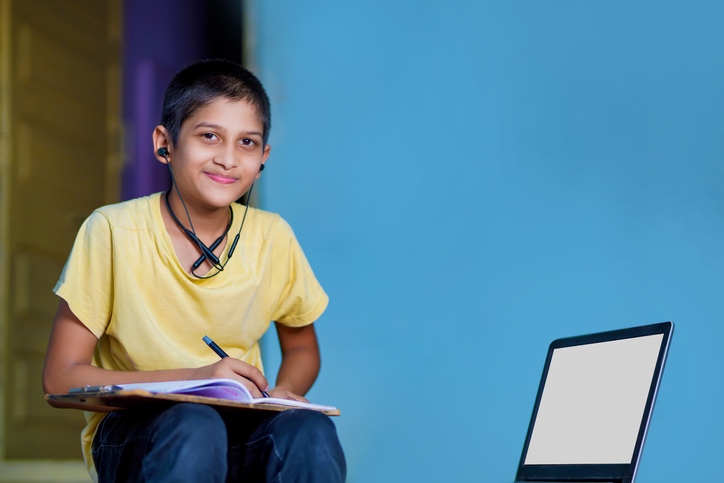
Image Istock
New Delhi, November 14
Over one-and-a-half years since the Covid pandemic broke out in India, the digital divide continues to pose challenges in remote teaching and learning, according to experts.
Teaching and learning activities had to move online when the pandemic forced the closure of schools and colleges.
While technology ensured that learning is not completely suspended, the digital divide continues to make remote learning an "operational nightmare".
A study by the Azim Premji Foundation showed that almost 60 per cent of school children in India cannot access online learning opportunities.
A similar study by Oxfam India found that even among students of urban private schools, half of the parents reported issues with Internet signal and speed. A third struggled with the cost of mobile data.
Only 20 per cent of school-age children in India had access to remote education during the pandemic, of whom only half participated in live online lessons, according to a new national sample survey by ICRIER and LIRNEAsia, a think tank focussed on digital policy. In fact, 38 per cent of households said at least one child had dropped out of school due to COVID-19.
"Digital schooling was the only logical way forward to continue learning for children during the pandemic. But now, there is a need to categorically address some pertinent issues for building a more resilient system for the future, regardless of whether conventional schooling or digital is the primary way forward," said Amruta Singh, an education expert working on K12 education.
According to Sangeeta Gadre, a Delhi University professor, the issue of the digital divide was faced at both ends of the academic transaction, be it the teacher or the student. "While advancing the cause of digitalization, these challenges must be accounted for. We also need to be cognizant of the fact that women are proportionately more disadvantaged when it comes to the usage of digital devices," Gadre said.
Urvashi Sahni, a fellow at the Center for Universal Education at the Brookings Institution, said, "Technology has the potential to achieve universal quality education and improve learning outcomes. But to unleash its potential, the digital divide and the embedded gender divide must be addressed."
"Access to technology and the Internet is an urgent requirement in the information age. It should no longer be a luxury," she said. According to a professor of Ambedkar University, "The digital divide continues to make remote learning an operational nightmare. Over a year into the pandemic, it is still a challenge and cannot replace the traditional classroom learning." PTI
Join Whatsapp Channel of The Tribune for latest updates.



























